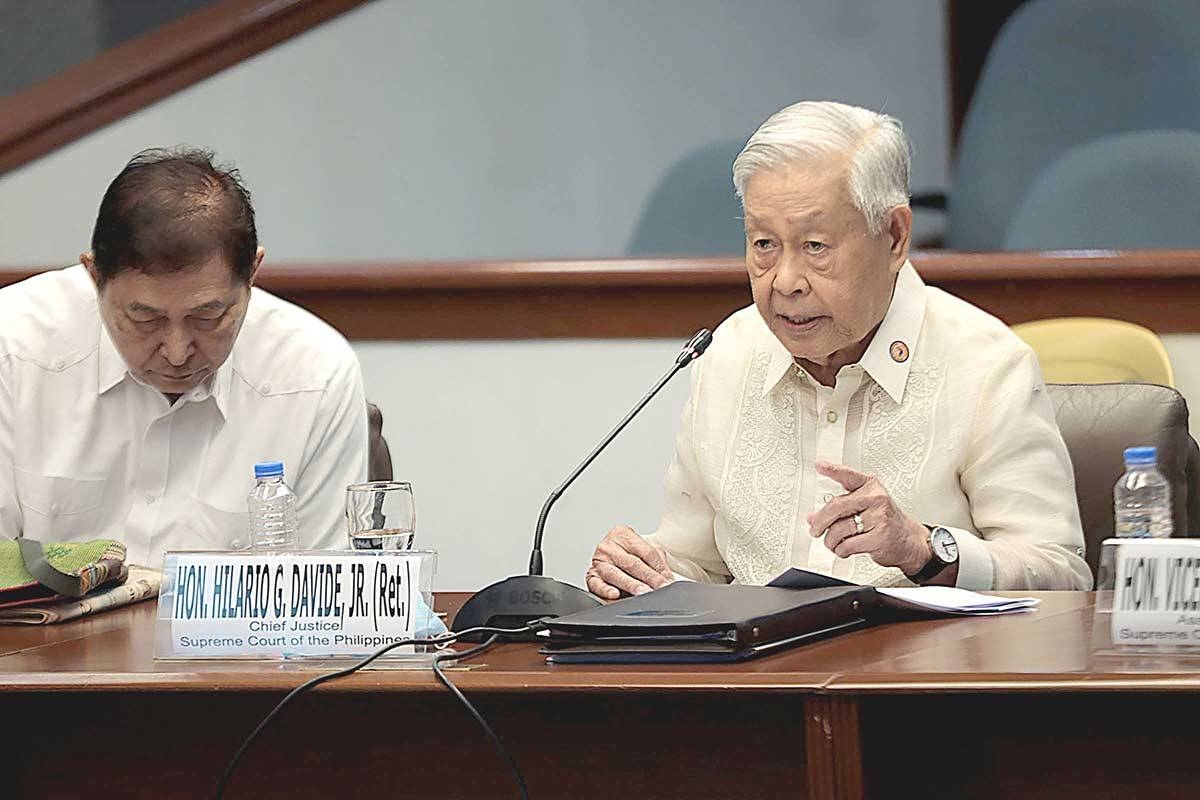Former Chief Justice Hilario Davide Jr. has raised concerns about the potential consequences of relaxing economic restrictions to attract foreign investors. Speaking at a Senate hearing, Davide warned that such a move could transform Congress into a lobby for foreign or local businessmen, compromising its role as a noble and patriotic institution.
Davide emphasized that relaxing the Filipino citizenship requirements in economic provisions could result in Congress becoming a market of lobbyists, seeking amendments to the Constitution in favor of foreign countries or businessmen. He urged lawmakers to remember that the Senate serves as the conscience of the Republic and should prioritize nationalistic ideals and ideas.
Retired Justice Vicente Mendoza, another participant in the hearing, proposed a solution to the ongoing debate on amending the Constitution. He suggested that the Senate and the House of Representatives should sit as one body during the amendment process. Mendoza argued that this approach would facilitate the exchange of views between senators and congressmen, regardless of their status, leading to a more comprehensive and informed decision-making process.
Mendoza highlighted that the Constitution envisions the two houses of Congress as members of a constituent assembly, emphasizing the benefit of exchanging views in a unified setting. He cautioned against leaving policymaking solely to Congress by law, as it would limit the opportunity for a meaningful exchange of ideas.
Adolfo Azcuna, another former magistrate, expressed his opinion on Resolution of Both Houses (RBH) 6, which proposes changes to the Constitution. Azcuna suggested that instead of altering the wording of the Constitution, the phrase “unless otherwise provided by law” could be added. This approach would allow for flexibility while maintaining the integrity of the Constitution.
Christian Monsod, former chairman of the Commission on Elections (Comelec), pointed out that the Philippine Development Plan 2023-2028, which outlines the government’s economic goals and programs, does not mention any need for Charter changes. Monsod argued that there is no special requirement to address the perceived problem of restrictions against foreign direct investments.
Senator Imee Marcos shared her experience of daily interactions with foreign investors and locators, stating that they have not expressed a need to change the Constitution. This insight suggests that foreign investors may be more concerned with other factors, such as the ease of doing business and the quality of infrastructure, rather than constitutional restrictions.
Senator Sonny Angara, the chair of the Senate Subcommittee on Constitutional Amendments and Revision of Codes, expressed skepticism about the potential economic benefits of amending the Constitution to relax foreign ownership restrictions. Angara emphasized that while exploring possibilities is important, amending the Constitution alone would not guarantee an economic miracle. He highlighted the need to address typical barriers to foreign investment, including the cost of doing business, red tape, and infrastructure quality.
Angara clarified that Republic Act 11659, which amended the Public Service Act, already addresses some of the barriers identified by proponents of Charter change. He stressed the importance of conducting rigorous and exhaustive studies before considering any proposal to amend even a part of the Constitution.
In conclusion, the debate on relaxing economic restrictions to attract foreign investors involves multiple perspectives and considerations. Former Chief Justice Davide’s warning about the potential transformation of Congress into a lobby for foreign or local businessmen raises important questions about the balance between attracting investment and protecting national interests. The insights and commentary provided by various participants in the Senate hearing contribute to a more nuanced understanding of the issue at hand. Ultimately, any decision regarding constitutional amendments should be made with careful consideration of the potential consequences and the best interests of the Filipino people.
Source: The Manila Times








